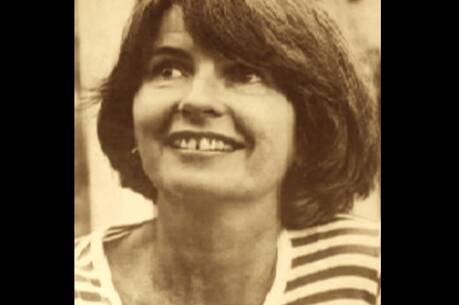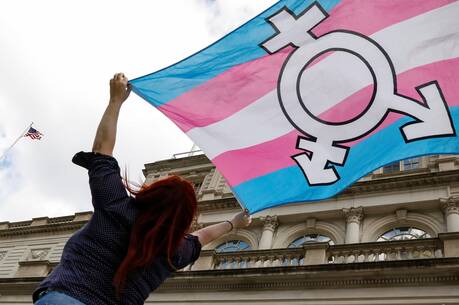I heard Cardinal Waltar Kaspar deliver, on Feb. 21, the 31st annual Paul Wattson Lecture, sponsored by the Friars of the Atonement and the University of San Francisco. His topic was " Hope for the Future of Ecumenism". Kaspar recently retired as the long-time President of the Pontifical Council for Promoting Christian Unity. Eventually, Kaspar's lecture will get published in the journal, Ecumenical Trends. Much of its material can, already, be found in Kaspar's 2004 important book, That They All May Be One ( Burns and Oates, Continuum Books).
His core concern is about authentic hope, a deep Christian reliance on God's grace and spirit. Such hope is not something primarily political or merely the result of human effort. Nor is it about utopian dreams. Any focus on ' the future' of ecumenism will recognize today a vastly different terrain for ecumenism than was present, almost fifty years ago, at the time of the Vatican Council. At that time, among mainline Protestants and Catholics there was--perhaps unrealistically--a nearly palpable hope that very soon, maybe in our own lifetimes--we would see a more visible unity among the churches. Today , such enthusiasm--except perhaps among a few ecumenical experts--is long since gone. A new spirit of disenchantment about ecumenism and some burning new issues and questions now confront us.
Some note that, after that initial enthusiasm--and even what Kaspar calls a period of ' wild or unrealistic' ecumenism--a spirit of relativism and indifferentism about truth has fallen even upon many believers. Mainline Protestantism and, in Europe and the United States, Catholicism lost adherents. A brand new spirit of separate confessionalism, concern for one's own identity in a culture where ecclesial identities seem to have paled, took over. Such concerns for inner identity rose in new ways among the Orthodox after the fall of Communism. Among many Protestants ecumenism became a matter of " peaceful coexistence and friendly cooperation", including a mutual recognition of one's eucharist and ministry, despite some glaring differences, even contradictions, in the very definition of what constitutes eucharist, ministry and the church.
After a long and fruitful dialogue between Catholicism and Anglicanism ( cf. the 1986 Anglican-Roman Catholic joint declaration, " Salvation and the Church") and between Catholicism and Lutheranism ( cf. the 1999 Lutheran-Roman Catholic Joint Declaration, " On Justification")--new issues of ethical judgements ( about abortion, about homosexual marriage etc.) have split Catholics and many of the main-line Protestant churches. So, a new ecumenical question arises: How do churches truthfully come to ethical judgments and how do ' particular' churches relate to the universal church in acting out such judgements. Paradoxically, the Catholic positions on many of these same new ethical issues have been found congenial among Pentecostals who represent, at present, 400 million Christians world-wide. On questions of ministry, eucharist and the meaning of the church, however, Catholics diverge widely from Pentecostal views.
In some ways, the long and fruitful dialogues among theologians and ecumenical experts on issues of communion, ministry, eucharist, the bible are a rich treasure trove from the post-Vatican II ecumenical dialogue. Such documents, while quite precious, remain, too often, however, mere paper. They lack the fire of Pentecost.
In a sense, I took away from Kaspar's excellent lecture three major points. First, we need to acknowledge that we have made enormous strides since Vatican II. While we remain quite separate as churches, we no longer see each other as 'competitors' or enemies. We recognize that, throughout the spectrume of Christian churches, elements of the one church of Christ are present. Indeed, the Catholic sense that the fullness of the church of Christ ' subsists' only in the Catholic Church has as its corollary that many essential elements of that church not only exist outside the borders of Catholicism but may exist there in a more perfect form than in Catholicism. So, ecumenism still remains the task of finding a communio and a mutual exchange of gifts. No doubt a Catholic renewal of scripture has been, strongly, a gift from the Protestant reformation.
Kaspar's second point is the most crucial. He reminds us of the words of Jesus spoken in John 17:21: " That they may all be one, as you, Father, are in me and I in you, that they also may be one in us, that the world may believe that you sent me." Jesus' prayer was uttered not in some utopian optimistic moment but just before his passion, when all seemed hopeless. That prayer recalls for us that the division among Christians contradicts the will of Christ. As Pope Benedict has put it, ecumenism, rooted in truth and love, is not some luxury. It is at the core of the essential mission of the church. So, Kaspar insists on what he calls " spiritual ecumenism". He means by this something that is not merely academic or the work of theological experts.
Paul Wattson, after whom the lecture was named, after leaving the Anglican communion and becoming a Catholic, started the annual week of church prayer for unity. We need, too, to find quite concrete ways to follow and participate in Jesus' prayer for unity. Many of the first ecumenical movements of the eighteenth and nineteenth century began, essentially, as prayer movements. But ' spiritual ecumenism' also encompasses, besides mutual prayer, a concrete living together, finding a network of ecumenical true friends ( even if it starts in small groups) who explore what it means to experience one another as a true sharing of gifts. As Kaspar puts it, in his experiencee, if ecumenism is not profoundly rooted in a prayerful entry to Christ's prayer for unity, it does not bring forth results that are more than academic or on paper. Spiritual ecumenism looks for spiritual renewal and a true exchange of spiritual experiences--an exchange of gifts and life.
Yet, pressing theological questions also still remain. At root, the core questions dividing Christians are less about the Trinity or Christology than about the doctrine of the church. Catholics ( and Orthodox) have very different notions than many Protestants of the church as a communio and a visible unity around one faith, one ministry, one set of sacraments rooted strongly in episcopacy and, for Catholics, in the Petrine ministry of unity of the pope. To be sure, the concrete forms the papacy or episcopacy take can change. But, ultimately, many Protestants, in holding a very different notion of church from Catholics and Orthodox, also have a different view of the goal of ecuminism. Unity, to be sure, is not uniformity. It represents, rather, in an apt formula from the Catholic-Lutheran dialogue, ' reconciled diversity'. The church, rooted in the Trinity's own life, is a communio, unity in and through diversity and diverse gifts. But it is also grounded in truth. ' Reconciled diversity' can never be the same as real contradictions. The ecumenical movement still has much work yet to do! But its urgency can never pale if we take Jesus' prayer for unity to heart.








Could you say a little more about the joint statement on justification by Catholics and Lutherans? It still leaves me scratching my head. There are just fundamental differences, especially with regard to the mass and its role in justification, that don't seem to add up. I recognize that the declaration acknowledges differences exist still, but I still think that the differences are so fundamental that there is little room for common belief. The understanding of the Eucharist seems to me to be a big difference that bears on this directly, especially for all the Catholics who like to buy mass cards for others and the Lutherans who think this amounts to merit-based justification.
Thanks.
After some of the things Kasper has said, I'd not call him ecumenical -
"Cardinal Kasper addresses Bishops' Meeting" .... http://www.churchofengland.org/media-centre/news/2006/06/pr6006b.aspx
"What Cardinal Walter Kasper said about the UK" ... http://www.bbc.co.uk/news/world-europe-11329489
http://www.abc.net.au/rn/talks/8.30/relrpt/stories/s1099662.htm
And now I will no longer be in the world, but they are in the world, while I am coming to you. Holy Father, keep them in your name that you have given me, so that they may be one just as we are.
John 17:11
The ultimate logic of ecumenism is that all would become Catholic in order to receive and partake in the fullness of faith established by Christ Jesus. It may be necessary in practical terms to "cooperate while respecting difference", but only toward that ultimate divine goal.
I thought that much of the Cardinal's talk is putting a best face on the seperation.
The establishment of "ordinariates" for Anglicans coming over and the recent South American Anglican establishmen tof 'ordinariates" for Catholics to join underscore the new differences.
The new theologians emphasized in an America article recently as well as the perspectives of young adult Catholics mentioned in the Lost? posts here may ameliorate that trend down the road, but, currently, except with the Orthodox, I think the ecumenical horizons are rather dim.